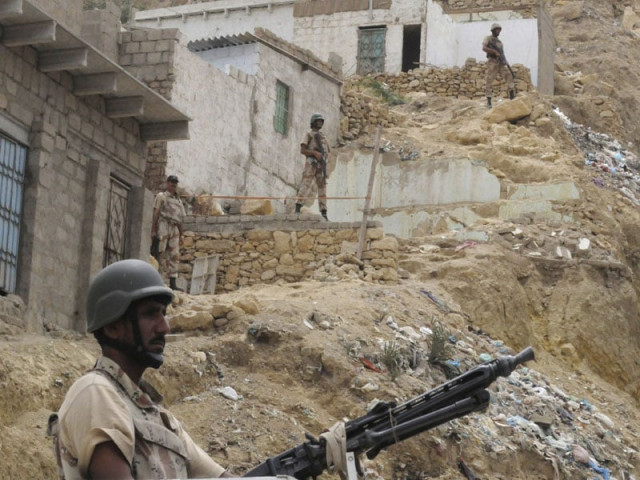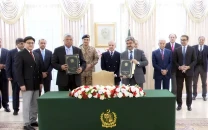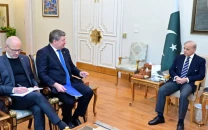The death of governance in Karachi
Paramilitaries failed before because the solution to Karachi’s problems lies in political compromises not more guns.

The new revelation he has unleashed on the people of Karachi is that the Taliban have joined the various armies killing them at random. He said north Karachi was full of the armies of the Taliban taking orders from al Qaeda. This was not much of a revelation because the fact of Taliban presence through such banned outfits as Lashkar-e-Jhangvi, Sipah-e-Sahaba and Jandullah is well known. We also know that the police in the past have arrested thousands of terrorists guilty of target killing but we would like to know what happened to them apart from the generally accepted view that they are let off because of poor prosecution. And why is the prosecution poor? Because the police in Karachi have to serve the very politicians who are preying on the city. However, to say that the ANP and the Taliban are hand in glove in Karachi, as some are suggesting, is asking a bit much from a sane mind.
Over the years, sections of the city seem to have slipped out of governance. Orangi in north-western Karachi, built by famous social worker Akhtar Hameed Khan, was once a ‘pilot’ project that the world’s urban experts would come to see. Now it is the hub of violence perpetrated by organised killers that span ethnic, linguistic and religious lines. It has a lion’s share in the deaths Karachi has seen this year. The police admit they can’t get into many parts of Orangi because the balance of power there is in favour of the terrorists. At least 490 people died in targeted killings in the first six months of 2011, compared to a total of 748 in 2010 and 272 in 2009.
Apart from the al Qaeda-linked fighters, the killers must (and we say ‘must’ because they didn’t descend on the city from anywhere else) belong to the three political parties pretending to govern Karachi: the PPP, MQM and the ANP, all of them secular in temperament, pretending to be victims of one another’s aggression. With the largest single chunk of population in the city, the MQM is often the most vociferous in crying victim — there is in fact a new edge to this victimhood now that the party is out of the government. But the people of Pakistan, despite coercive silence on the part of the media and the police, believe none of the three when their representatives come on TV.
Orangi, with one-tenth of Karachi’s population, is controlled by many mafias. It is situated at a strategic location, connecting Balochistan to the city via the Mai Garri road and touching the Northern Bypass. The hills of Orangi are contested by these mafias for its resources but come in handy for killing citizens like flies. Along with people, governance has died as well. The interior minister has directed the deployment of a thousand paramilitaries but that, at best, is a stop-gap measure. In the past the paramilitaries have failed because the solution to Karachi’s problems lies in political compromises and agreements not in deploying yet more guns.
Karachi has been consigned to the docket with ‘no solution’ written on it, though people are given ‘assurances’ every now and then that things are being done. A good example of that is the now-planned revival of the commissionerate system for the city. While it may have some administrative value, it cannot be a solution to ending the violence on its own and is bound to be opposed by the MQM. Karachi is where the country’s economy breathes and lives and since it is (yes clichéd, but true) a ‘mini-Pakistan’, violence in it affects the whole country. The three secular stakeholders have to unite and revive Karachi’s governance. All three, instead of coming on TV and accusing one another, should see where they are interfacing with the criminal, sectarian and ethnic underworld and resolve to let the security agencies do their job.
Published in The Express Tribune, July 10th, 2011.



















COMMENTS
Comments are moderated and generally will be posted if they are on-topic and not abusive.
For more information, please see our Comments FAQ